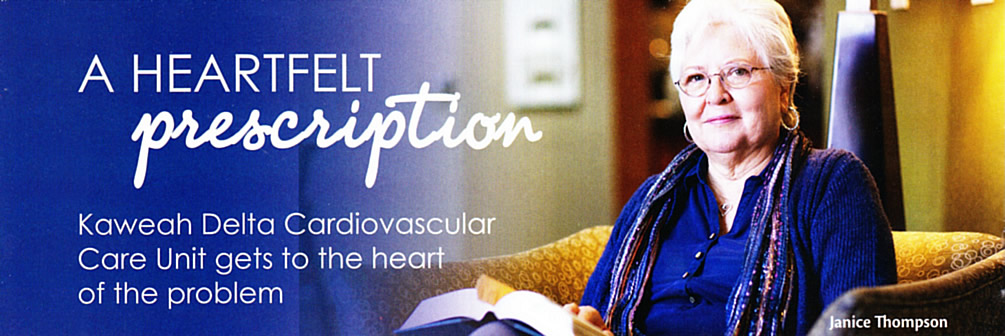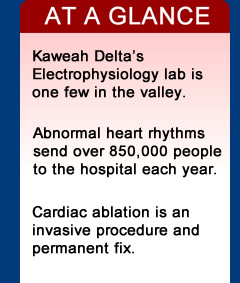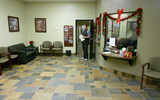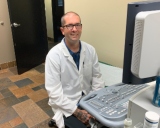Article From Vital Signs - Kaweah Delta Health Care District - Feb 2011 Issue
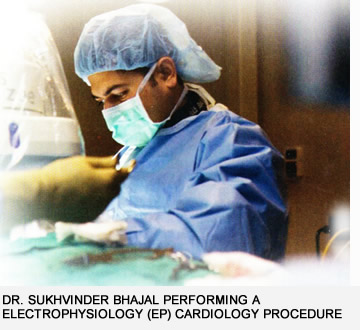 Everyone has felt their heart race at some point in time, but Janice Thompson knew the way her heat began racing in her 20s was unusual.
Everyone has felt their heart race at some point in time, but Janice Thompson knew the way her heat began racing in her 20s was unusual.
"There were these bursts where my heart would beat really fast for a couple of minutes, but then they would be gone," said Thompson, now 63, and a nurse at Kaweah Delta Medical Center.
While the irregular heart rhythm didn't bother Thompson for years, they became more troublesome lasting first an hour or two, and then up to eight hours.
Thompson saw a doctor and was diagnosed with supraventricular tachycardia, a regular, fast heart rate that begins and ends suddenly. While a healthy heart beats anywhere from 60 to 100 times per minute at rest, Thompson's could beat from 160 to 220 beats per minute. The culprit: extra tissue was causing a short circuit in her heart.
She took medication daily that made her heart beat slower, too slow, she thought. If it happened on vacation, she worried that she might have to find a hospital. "I remember praying that my heart wouldn't race," Thompson said.
After a visit with Dr. Sukhvinder Bhajal, the only cardiac electrophysiologist between Bakersfield and Fresno, Thompson took a trip to Kaweah Delta Medical Center that changed her life.
Dr. Bhajal, an "electrician of the heart" and part of Kaweah Delta's Cardiovascular Care Unit, fixed the problem by performing a cardiac ablation. The invasive procedure allowed him to destroy tissue that was disrupting electrical signals that controlled Thompson's heart rate. Since 2007, Dr. Bhajal has done more than 1,000 cases at Kaweah Delta Medical Center in the cardiac catheterization lab, one of the few electrophysiology labs in the Valley.
Cardiac ablation is one of the common electrophysiology (EP) cardiology procedures performed at Kaweah Delta Medical Center. Others include diagnostic EP studies, implant-able defibrillators, permanent pacemakers and implantable loop recorders. Kaweah Delta Cardiovascular Center is one of few hospitals that have a dedicated EP team with a dedicated cath lab. The lab is equipped with advanced monitoring equipment and 3-D electroanatomical navigation.
Irregular heart rhythms can happen at any age and any time, so it's important for people to be aware of them and seek treatment, Dr. Bhajal said. If someone has one, they should visit their primary physician to be referred to electrophysiologist.
"People should know that they don't have to travel out of town to Fresno or the Bay Area to get these life-changing services anymore," Dr. Bhajal said.
Thompson says her life has changed. She's no longer on heart medicine, she goes on vacation without plotting out the nearest hospital, and she takes the stairs at work.

